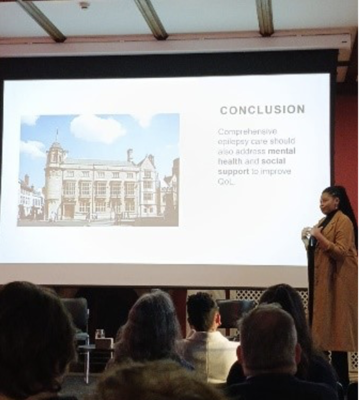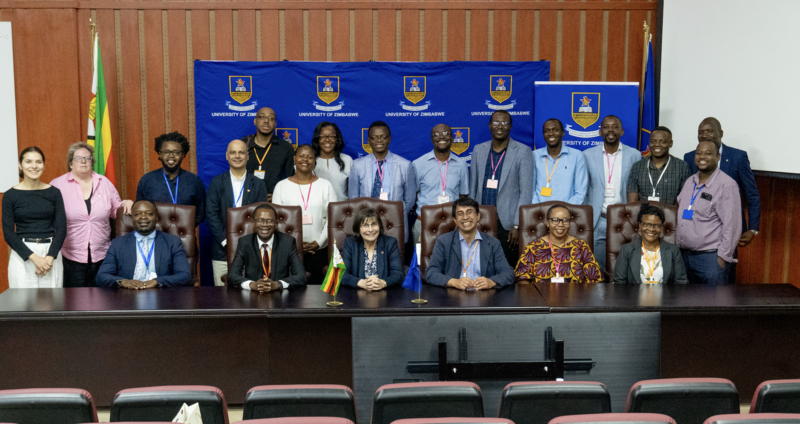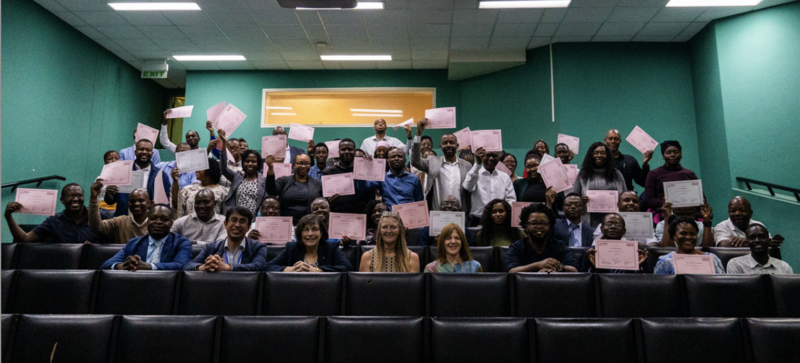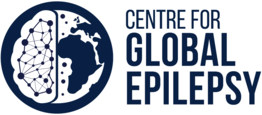Capacity Building & Training
At the Centre for Global Epilepsy, we are committed to strengthening the global workforce of epilepsy professionals. Through capacity building and training initiatives, we aim to equip healthcare providers, researchers, and advocates with the knowledge and skills needed to address the challenges of epilepsy care worldwide. Our fellowships, mentorship programs, workshops, seminars, and conferences are designed to foster expertise and create a network of professionals who can drive progress in epilepsy research and treatment. We are also actively involved in designing and delivering specialized courses, such as the Epilepsy Training in Adult Medicine (ETAM) course and the Solving Stigma in Epilepsy course, to provide targeted education and training in key areas of epilepsy care.
Visiting Scholars' Programme
The Centre for Global Epilepsy’s Visiting Scholars' Programme offers a unique opportunity for clinicians and researchers from resource-limited settings to gain hands-on experience in global epilepsy research and care. Scholars will immerse themselves in research, develop specific skills and collaborate with experts across various fields such as medical history, public health and pharmacology.
Scholars will spend six to eight weeks at Oxford, participating in training, projects and an adjunct placement in a field outside of their host department. The programme also provides the opportunity to share their experiences through public lectures, accessible to global audiences.
This capacity-building initiative not only strengthens global networks but also fosters long-term collaborations, enabling fellows to apply their learning to improve epilepsy care and research in their home countries. If you are passionate about making a lasting impact in the fight against epilepsy, apply to join the Scholars' Programme and contribute to transforming global epilepsy care. To see who has previously completed the fellowship and how they are contributing to global epilepsy research and care, visit our past fellows page.

Solving Stigma in Epilepsy Course
The Solving Stigma in Epilepsy course is designed to address the pervasive stigma surrounding epilepsy, with a particular focus on how stigma presents itself within healthcare settings. The course examines both the research and lived experiences of individuals affected by epilepsy, highlighting how stigma impacts healthcare access, the quality of care, and the daily lives of those with the condition. It includes interactive components, such as case-based discussions and practical demonstrations, to empower participants to create strategies for reducing stigma and promoting better understanding within healthcare settings and communities. By bringing together healthcare professionals, advocates, and individuals with lived experience, the course fosters an open dialogue aimed at tackling stigma from multiple perspectives.
The inaugural Solving Stigma in Epilepsy course was held in Harare, Zimbabwe, in February 2025. Delivered by Professor Sloan Mahone, the course brought together 26 participants, including healthcare professionals, advocates, and individuals with lived experience of epilepsy. Participants engaged in in-depth sessions that specifically addressed the stigma surrounding epilepsy in healthcare settings, its impact on healthcare access, and the societal challenges faced by individuals living with the condition. The course included practical components such as a seizure first aid demonstration and breakout sessions to facilitate case-based discussions. These interactive elements allowed participants to develop strategies for reducing stigma in healthcare environments and their own communities.

Epilepsy Training in Adult Medicine Course
The Epilepsy Training in Adult Medicine (ETAM) course is a comprehensive educational program designed to enhance the capacity of healthcare professionals in managing and treating epilepsy. It aims to provide in-depth knowledge of epilepsy diagnosis, treatment options, and the overall care of individuals with epilepsy. The course is typically tailored to a wide range of healthcare professionals, including doctors, nurses, neuropsychologists, and medical students. ETAM courses incorporates interactive learning, case-based discussions, and hands-on training to ensure practical application of the knowledge gained. Additionally, ETAM includes a "Train-the-Trainer" component, which equips local faculty members with the skills to deliver the course and continue the education process within their own regions, ensuring sustainability and long-term impact in improving epilepsy care.
The first delivery of the Epilepsy Training in Adult Medicine (ETAM) course was conducted in Tanzania, where it successfully introduced healthcare professionals to essential epilepsy care practices. The second course was held in February 2025 at the University of Zimbabwe, where the training was delivered in collaboration with the International League Against Epilepsy (ILAE), the British Pediatric Neurology Association, and the Epilepsy Support Foundation, Harare. Over three days, 104 participants were trained, including 17 local faculty members who will continue to provide epilepsy care training across Zimbabwe.





